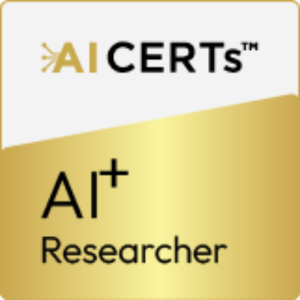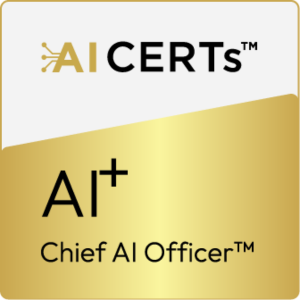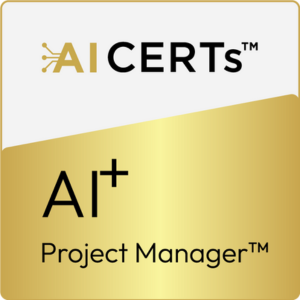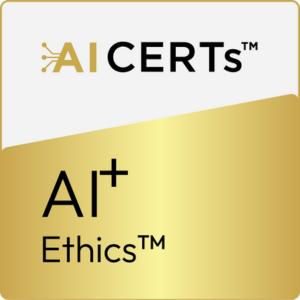Prerequisites
- Basic understanding of AI concepts; no technical skills required.
- Curiosity to explore AI-driven problem-solving in academic and professional contexts.
- Willingness to address ethical dilemmas associated with AI in research practices.
- Enthusiasm to uncover new tools and insights for combining AI and research principles.
Exam Details
- Modules (8)
- Examination (1)
- 50 MCQs, 90 Minutes
- Passing Score ( 70% (35/50) )
Exam Blueprint
| Modules | Percentage |
|---|---|
| Introduction to Artificial Intelligence (AI) in Research | 12 |
| Getting Started with AI for Data Collection | 12 |
| Advanced AI Research Techniques | 14 |
| AI in Research Design and Methodology | 14 |
| Monetizing AI Research Skills | 12 |
| Mastering AI for Data Analysis | 14 |
| AI for Ethical Research Practices | 12 |
| The Future of AI in Research | 10 |
What you will get
High-Quality Videos, E-book (PDF & Audio), and Podcasts
AI Mentor for Personalized Guidance
Quizzes, Assessments, and Course Resources
Online Proctored Exam with One Free Retake
Comprehensive Exam Study Guide
Why This Certification Matters
- Master AI Research Methods
Learn to design, test, and refine AI models for academic and industry-focused research. - Data-Driven Discovery
Use AI tools for advanced data analysis, hypothesis testing, and predictive modeling. - Lead AI Innovation
Stay ahead in a field where institutions and organizations need AI research talent. - Accelerate Your Career
Open doors to roles in universities, tech firms, R&D labs, and government AI initiatives.
Who Should Enroll
- Scholars and Researchers
Integrate AI tools into research workflows to enhance data analysis and generate deeper insights. - Market Research Analysts
Use AI to streamline research processes, extract actionable insights, and improve strategic decisions. - Data Scientists
Apply AI techniques to complex datasets for faster analysis and innovation in research outcomes. - Academic Leaders
Lead research transformation by adopting AI to boost productivity and institutional impact. - Students and New Graduates
Develop advanced research skills using AI tools to stand out in academia and R&D careers.
- TensorFlow
- Scikit-learn
- AI Fairness 360
- Zotero
Prerequisites
Basic understanding of AI concepts (no technical background required)
Openness to innovative, AI-driven approaches to research and problem-solving
Interest in exploring how AI enhances research tools and methodologies
Willingness to engage with ethical considerations in AI-powered research
Exam Blueprint:
- Introduction to Artificial Intelligence (AI) in Research – 12%
- Getting Started with AI for Data Collection – 12%
- Advanced AI Research Techniques – 14%
- AI in Research Design and Methodology – 14%
- Monetizing AI Research Skills – 12%
- Mastering AI for Data Analysis – 14%
- AI for Ethical Research Practices – 12%
- The Future of AI in Research – 10%
Frequently Asked Questions
What does the AI+ Researcher Certification course cover
The course covers AI-powered research methodologies, data analysis, predictive modeling, ethical AI use, and the integration of AI tools across academic and industrial research.
Who should take this course
This course is ideal for scholars, researchers, data scientists, market analysts, academic leaders, and students interested in applying AI to enhance research impact and efficiency.
What tools and technologies are introduced in this course
You will be introduced to AI platforms and tools such as ChatGPT, AI Fairness 360, Power BI, and IBM Watson OpenScale to support various stages of research.
How will I benefit from this certification in my research career
You will gain practical skills in AI-driven research, positioning yourself for roles in universities, tech firms, R&D labs, and government initiatives focused on innovation and discovery.
How will AI be applied to research in this course
AI will be applied to data handling, hypothesis testing, insight generation, research automation, and ethical evaluation—enabling deeper and faster research outcomes.





